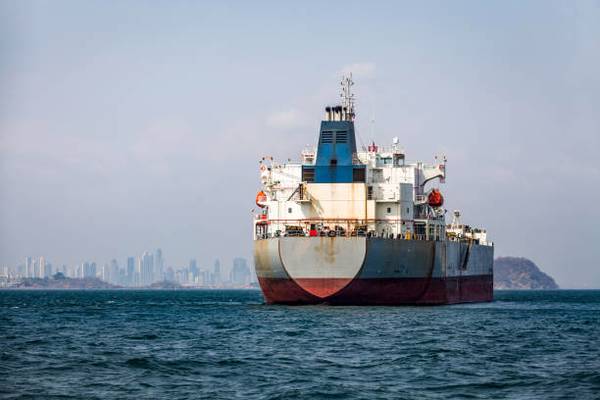COP28: US collaborates with MMMCZCS to explore green corridor opportunities in Global South
The US Department of State and Department of Energy, along with the Danish government have partnered with Mærsk Mc-Kinney Møller Center for Zero Carbon Shipping (MMMCZCS) to conduct pre-feasibility studies to determine green shipping corridors in five countries in the Global South.
 PHOTO: A container ship waiting offshore at the entrance of the Panama Canal. Getty Images
PHOTO: A container ship waiting offshore at the entrance of the Panama Canal. Getty Images
The project will conduct pre-feasibility studies for potential green shipping corridors in Namibia, Panama, Fiji and two more countries that are yet to be announced, MMMCZCS said. This announcement was made at the ongoing UN Climate Change Conference (COP28) in Dubai, the marine research center added.
“This project aims at demonstrating that green corridors can have benefits also for developing countries,” MMMCZCS said. “The project partners will work closely with national and local stakeholders and the private sector, ensuring strong national ownership and capacity building,” the Denmark-based research firm further added.
Green Corridors are maritime routes that actively showcase the use of low- and zero-emission lifecycle marine fuels, to achieve net zero-emissions. These corridors function as collaborative initiatives involving various stakeholders, both the public and private sector, working in tandem to actualize the decarbonisation of a shipping route. This approach fosters effective communication and cooperation among various stakeholders within the entire maritime industry, encompassing local alternative fuel producers, port operators, vessel and cargo owners, etc.
“For a seafaring nation like Namibia, they [the project] are equally impactful catalysts for development and a bedrock for sustainable industrialization and a key ingredient of our nation’s Green Industrialization Agenda,” said James Mnyupe, presidential economic advisor and green hydrogen commissioner of Namibia.
Commodity trader Trafigura in its white paper released earlier this year also highlighted that countries in the Global South are well positioned to produce e-fuels cheaper than those produced in Europe. It stated that some Global South countries such as Argentina, Brazil, Chile and Colombia are endowed with some of the best potential for solar power and other renewable energy sources. That makes them well-positioned to produce large volumes of green hydrogen.
By Aparupa Mazumder
Please get in touch with comments or additional info to news@engine.online






